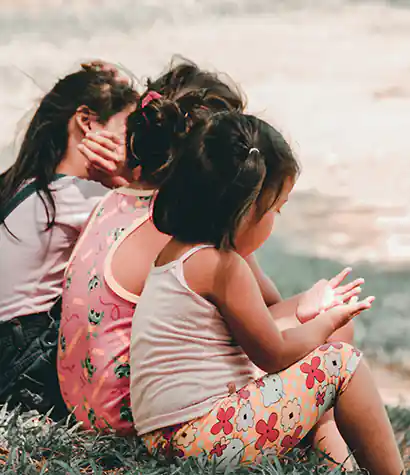
Quick Links
Subscription Preferences
Stay In Touch!
Looking for ways to keep up with NVC Academy news, get special offers, free resources, or words of inspiration? Here are five ways to stay engaged:

Tuesdays, October 1-November 19, 2024 (eight sessions)
5:00-6:30PM Pacific (California) Time
This live course is complete. You can register to receive access to the recorded sessions.
Learn How Nonviolent Communication Can Heal Your Childhood Developmental Traumas.
In this 8-session course Sarah Peyton will lead an exploration and a celebration of the power of Nonviolent Communication to transform and heal developmental trauma.
Nonviolent Communication is a practice of empathetic connection. A way of communicating with awareness, compassion and understanding. Not just with others, but with yourself, too.
Developmental trauma is the trauma that happens when there are repeated experiences of being harmed in early childhood. This results in after-effects for our brains.
 |
Did you know NVC has the potential to heal your innermost traumas? |
 |
Those traumas could be caused by childhood experiences of loss, neglect or abuse.
They can also be caused by parents/caregivers who were consistently unable to show up for their child in everyday situations. Trauma can occur when a child is:
These early experiences can take a hefty impact on young developing minds and contribute to a child’s:
The good news is Nonviolent Communication is a beautiful remedy for the significant impact of these experiences from our childhoods.
NVC can help us:
|
❤️ reclaim the parts of yourself that have been left behind, or silenced ❤️ re-establish connections, trust, attunement and autonomy you may have lost in your early days |
❤️ identify what you feel, and what you need in any given moment ❤️ feel alive again! |
During this 8-class series, Sarah will explore:
Disclaimer
This work is not therapy and is not a substitute for therapy. If you have a sense that you would be destabilized by yourself or others speaking about difficult events, then this course may not be for you. While we hope that the processes and information that we share can be of use in your journey, we do not have the resources to support extreme psychological difficulties.

Sarah Peyton, international speaker and facilitator, has a passion for weaving together neuroscience knowledge and experiences of healing that unify people with their brains and bodies. Sarah makes Interpersonal Neurobiology research available for our embodied brains to use in living at peace with ourselves. Funny, touching, and filled with personal stories and up-to-date research on our nervous systems and how they interact with each other, her presentations change lives and invite self-acceptance and self-compassion.
Sometimes this material can be unexpectedly deep and having accompaniment changes everything! — Sarah is delighted to be joined by a team of assistants who have been studying this material for years (in many cases 10 years or longer!) and/or are certified Resonance* Practitioners. Assistants will be available for free during class time to support you 1:1 when you need it the most.
*A Resonance Practitioner feels into something that someone else is experiencing, with them, in a process designed to bring both people into more connection and understanding with each other. They are moved by their sense of emotions and energy.
Registration Fee: $542
NVC Library members: $434
*NVC Library members get 20% off their registration fee using code NVCL at time of checkout
When you register, you will receive an email with complete instructions on how to access your course. Note that course recordings display images of active speakers only, and are made available to all registrants.
The live course is complete. You can register to receive access to the recorded sessions.

Looking for ways to keep up with NVC Academy news, get special offers, free resources, or words of inspiration? Here are five ways to stay engaged: